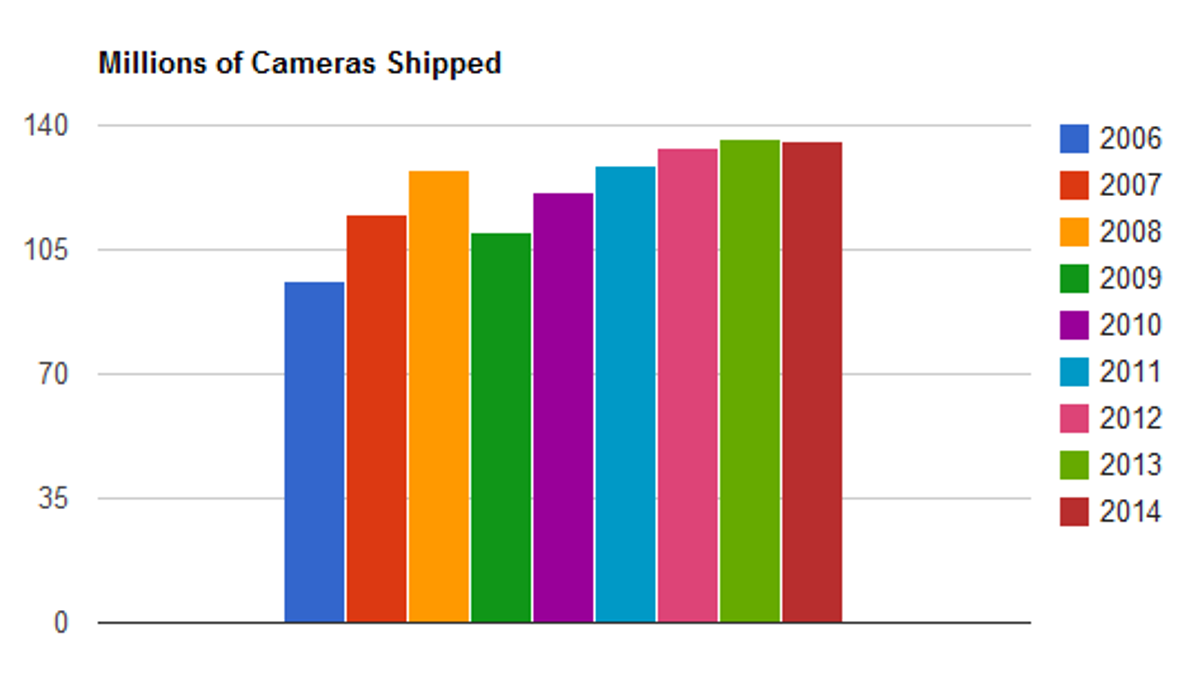CES: Phones expected to reverse camera market growth
iSuppli forecasts that camera sales will peak in 2013, after which sales will drop as people rely ever more on camera phones.

The glory days of the digital camera market are coming to an end.
So concludes analyst firm iSuppli, which forecasts modest growth in coming years followed by decline as camera phones take over.
It'll still be a huge market, with tens of millions of units sold annually--just not as big as it once was after it peaks in 2013, the firm forecast.
"During [2014], shipments are expected to decline by 0.6 percent to 135.4 million units, with low-end DSC [digital still camera] models expected to encounter stiff opposition from the cameras in cell phones, which increasingly will become the primary image-capture device for consumers," iSuppli said.
The firm estimates that camera sales grew 10.4 percent to reach 121.4 million units for 2010.
Cameras are a major part of the electronics industry, though. Canon, Olympus, Sony, Casio, Panasonic, Samsung, Fujifilm, and Polaroid introduced new cameras at the CES show this week. As cameras have converged with the broader electronics business, it's become harder to sustain dedicated camera shows such as PMA.
But much of the attention at the show was focused on new smartphones, all of which have cameras with resolutions as high as 8 megapixels.
Because the phones' image sensors are smaller than those used in conventional point-and-shoot cameras, and much smaller than those in SLRs, image quality suffers by comparison. But people always carry their phones and don't always carry their cameras, and as camera phones improve--LED flashes are increasingly common on smartphones these days--people are more likely to be satisfied with just the phone as long as they don't demand the higher quality.
Another big difference: you can do something with the photos on smartphones. Network connectivity is dangerously rare in conventional cameras, but with smartphones, people can upload photos to Flickr and Facebook, e-mail them to friends, and process them with phone software such as Photoshop or Hipstamatic.

